It seems serendipitous that Sesame Street premiered the same year as the Stonewall uprising. Both the educational children's show and the queer riots changed America irrevocably, paving the way for a more inclusive nation.
This is how Sesame Workshop, the nonprofit that produces Sesame Street, described the genesis of the program: "Set against the backdrop of the civil rights movement and the war on poverty, Sesame Street was created to answer a simple question: could television be used to level the playing field and help prepare less advantaged children for school?"
As Sesame Street -- and the modern LGBTQ movement -- celebrate big anniversaries this year, we spoke with one of the show's most famous writers, Mark Saltzman. The out screenwriter was caught up in a maelstrom a few months back when he told Queerty that the characters he helped bring to life, Bert and Ernie, were actually gay. LGBTQ fans cheered, conservatives wailed, and Sesame Street representatives denied the assertion in an initial statement some viewed as vaguely homophobic. Saltzman would later temper his statements, but in an interview with The Advocate, he offered a very nuanced take on the characters and their importance. Here's what he said:
The Advocate: How do you reflect on the controversy now?
Mark Saltzman: I'm glad the attention came to the bigger issue of gay characters being represented in children's TV. It just seems odd that it's taken so long, If you think of network television, what year is it -- why aren't there gay characters on TV? Is it 1980?
It seems children's TV has gotten a free pass on that. I don't think I gave that a whole lot of thought because I haven't been on Sesame Street for years and years. And I don't think a lot of gay people did either. I don't think gay politics is there.
Now that there's more and more gay families and gay couples raising kids it's probably a good moment to take a look at that and wonder why children's TV and children's films are so behind the curve on this. I don't know the answer. Certainly, there are elements of homophobia there. I'm also guessing there's a lot of thought about the bottom line and alienating the far-right if you include gay characters. So that combination just sort of locked in a sensibility. Most children's media places I worked, there are a lot of gay people working there; they're very LGBTQ-friendly.
Sesame Street for me in the '80s was a perfectly safe place for me to come out. It wasn't a place like Wall Street where you had to stay closeted to advance. I think we're just talking about what's on air; I'm glad I had some small role in getting that conversation started.
When is it appropriate for kids to learn about gay folks?
I think even that question seems antiquated; you're living in an urban setting let's say; not just New York or L.A., but St. Louis, Birmingham; if you're living in an apartment building or go to a park you'll see a gay couple raising a kid.
At what age do you explain this? If they happen to be your uncle, what-year-old? Your gay uncle is there to welcome you. How do you wall that off in life? You go to the playground at 3 years old. "Is your mommy with you?" "Both my mommies are with me." There are kids raised by gay couples, single gay moms and dads. In the playground, you just see this. Unless, you're just raised in a bubble and have parents who are excluding this from life. You're just going to have to see this as a kid in an urban or suburban setting; you're going to bump up against this at a really early age. There isn't really an outcry over it.
There's a thing that came up, with people saying, "Why is sexuality being discussed on a children's program?" That repelled me a little bit, because pre-schoolers don't recognize sexuality at all, but they represent families and they represent loving couples and mommies and daddies. Just to say, "Well, here's a kid and he has two daddies" -- where is there sexuality in that? It's less sexuality than a straight couple where there's an implied sexual component, with reproduction. With gay couples, the two of them did not reproduce so there's no sexuality, so everyone should be more comfortable with them!
It's interesting because had a straight writer said their spouse informed the characters, there would have been much less of a reaction.
There's be nothing. People would even say, which one's the girl and which one's the boy. You know, I really chose my words carefully in that interview; that it was about the writer's process and how you apply your life. I was in a Bert and Ernie relationship; I was the chaotic prankster. Arnie was as Bert as you can get. When I'd watch Bert and Ernie sketches I didn't write, I'd bring them home to torment Arnie (laughs). If you look at any gay or straight couples in your life, you'll notice Bert and Ernie relationships.
Speaking of straight people, even the most liberal heterosexuals have ingrained prejudices about LGBTQ people and children; they've been taught, at least subconsciously, that we're a threat. Meanwhile, LGBTQ people never see themselves in children's entertainment. Is this why this became such a big story?
What you say [about gay people and children] is a lie, a long lie that comes from homophobia; gay people preying on children. There's another lie, which is that the sexual orientation of children is so fluid that any direction and they go there. This idea that they're so innocent that they can be turned gay in a heartbeat; all they have to do is see a gay couple and they'll be gay for life.
Even though we know so much more about biology right now and we're learning more about gender fluidity; it's an ongoing investigation into what makes people cisgender, gender fluid, gay. Is it genetic? We can pretty much rule out the television shows they watch. Television shows can make kids more comfortable with them being gay or their parents being gay.
When it comes to Bert and Ernie, it's two guys who love each other and live together. For a kid being brought up by two dads, well how great, "My dads are like Bert and Ernie." For kids who are teased or bullied in pre-school, they can say my dads are like Bert and Ernie.
And if you're on your first sleepover with your best friend or you're on your family vacation and sharing a room with a cousin for a first time, it's like you're Bert and Ernie. So the idea of Bert and Ernie just as two males who bicker, share a room, that should be left alone, rather than Bert and Ernie are gay. Bert and Ernie are two guys who love each other and you can apply it [in any way that's helpful].
But also gay representatin is vital, especially with kids being raised in gay homes. I'm not sure Bert and Ernie need to be outed to be that. If the corporate level people can say we're glad our allies in the gay community embrace Bert and Ernie, like they did with Miss Piggy, that would kind of be so easy and neutralize the whole internet response. What is the big deal?
Were you surprised by the reaction of Sesame Street publicists?
The first [response] was their standard press release so it wasn't surprising. The reaction the world had to it on Twitter was surprising; all that passion. Using the word sexual orientation was kind of stodgy; when was the last time you heard that? We're talking about gender fluidity now. When they responded with a much more inclusive, warmer response, things calmed down. Sometimes even educational TV people need a little education. And they got it there. They learned a little bit about all the Sesame Street objectives; learning to live with people, accepting people. So Sesame Street learned that lesson.
What did you think of the response by Frank Oz, the director of In & Out and puppeteer of Miss Piggy, where he said to the effect, "Of course they're not gay."
There was some enlightenment there, too. By the end, Frank Oz understood why there's such a need for representation. All that passion really affected him and I think he got a little woke... Maybe the gay community is outraged because the most successful drag performer in the history of television is portrayed by Frank Oz, as Miss Piggy (laughs).
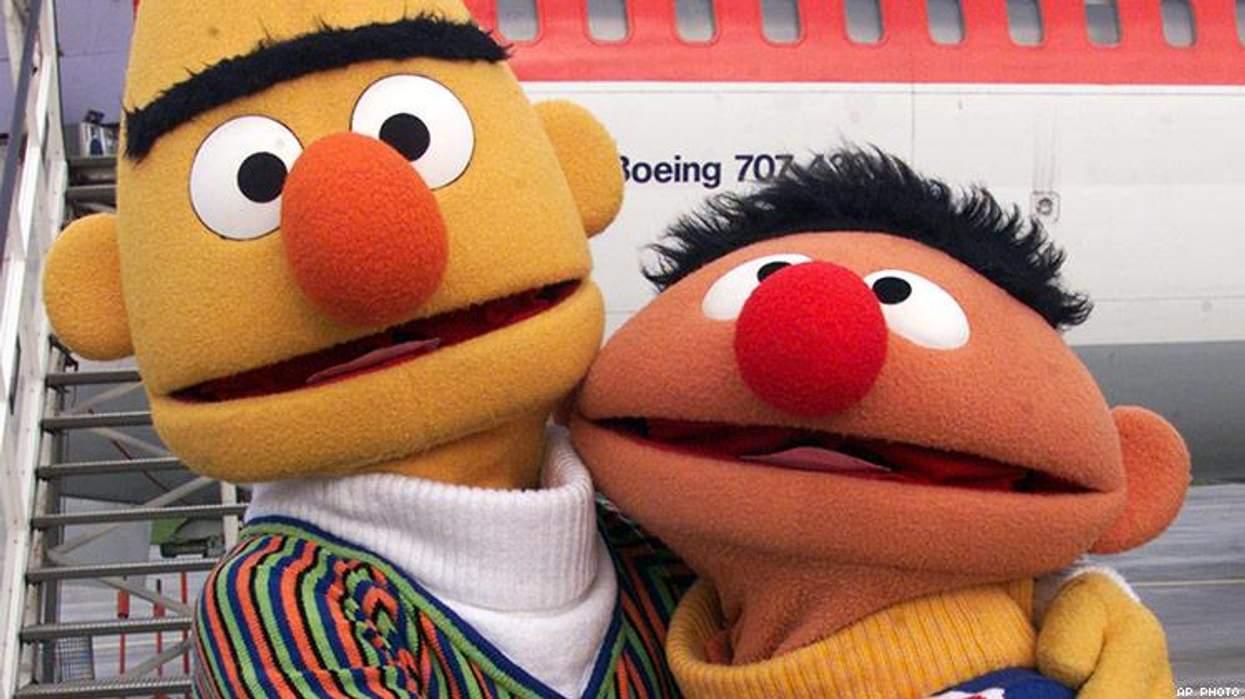

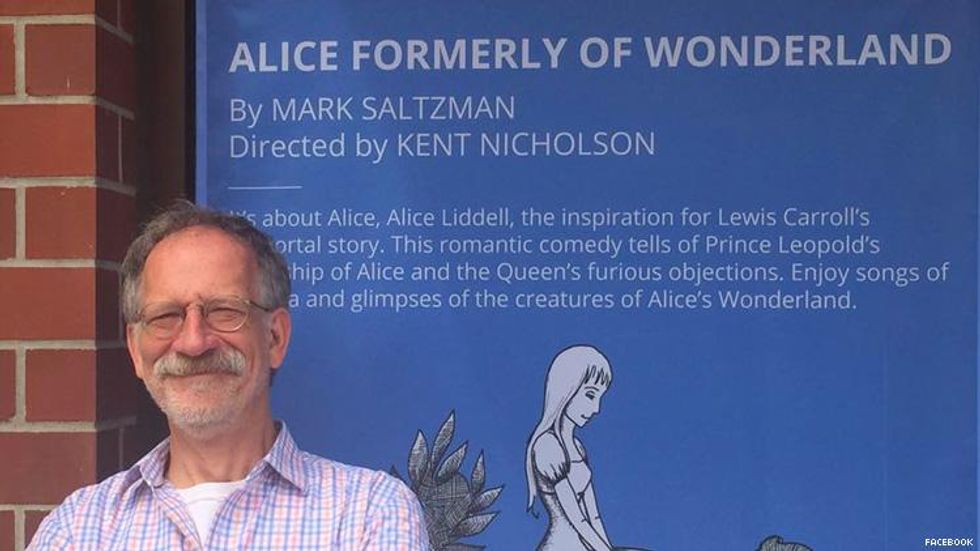




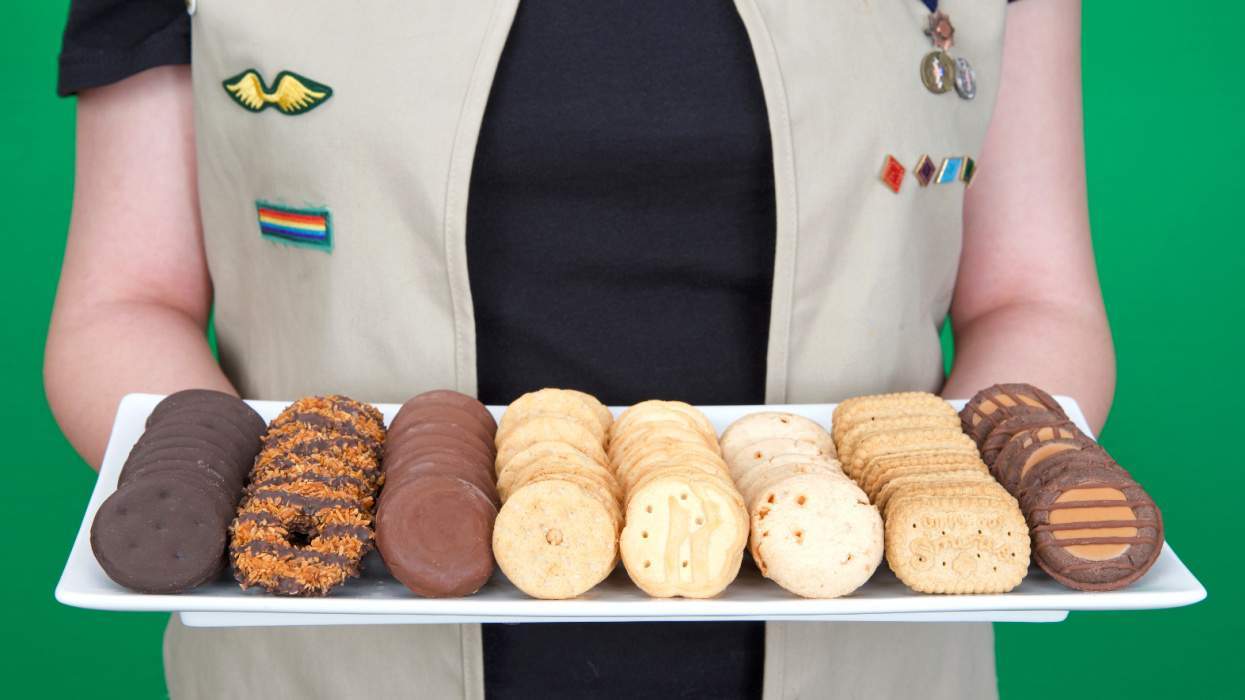

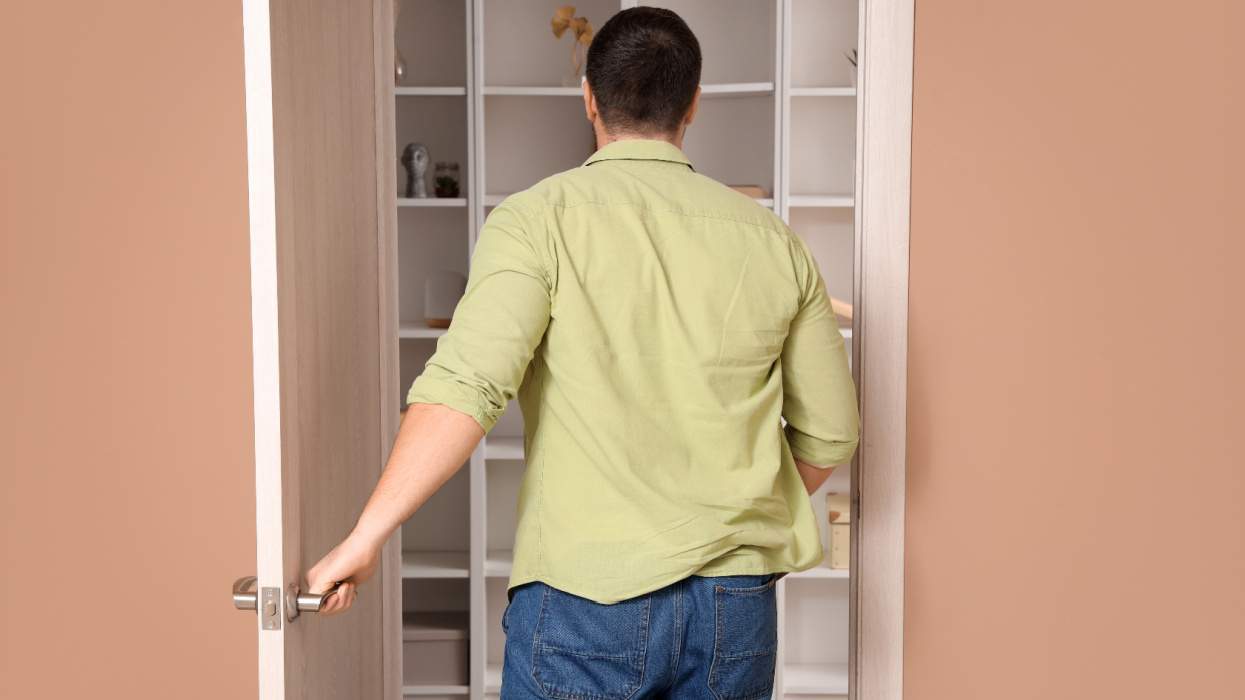

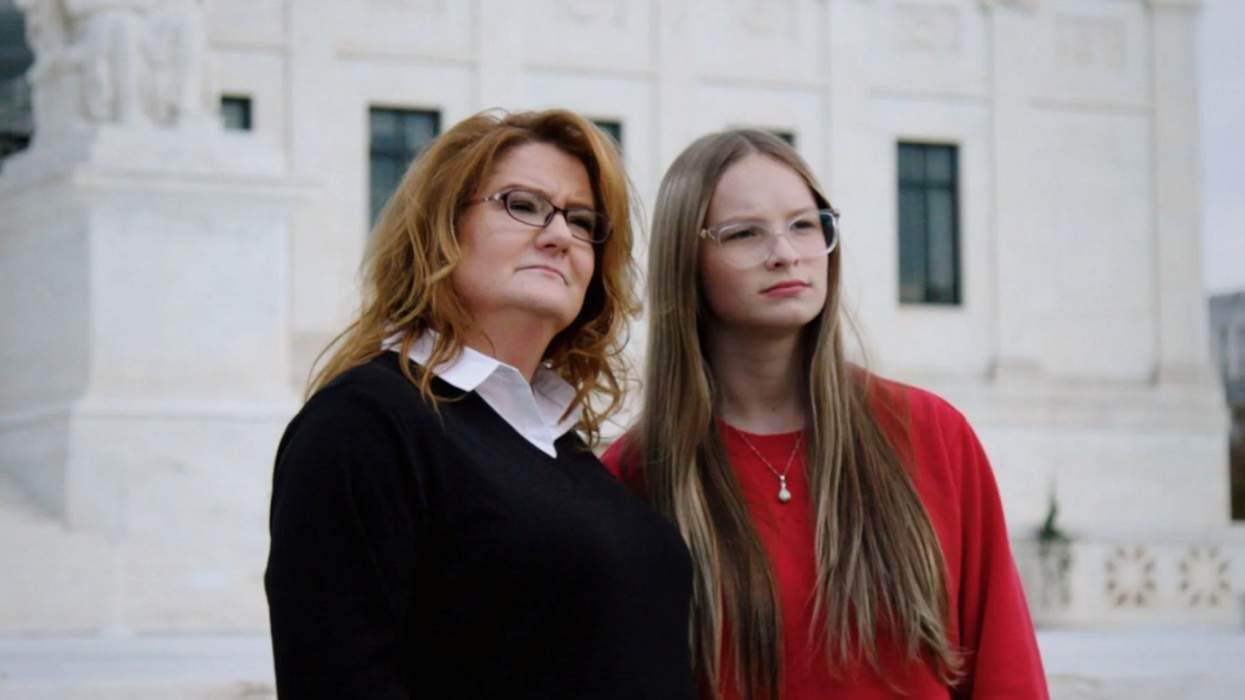





Charlie Kirk DID say stoning gay people was the 'perfect law' — and these other heinous quotes
These are some of his worst comments about LGBTQ+ people made by Charlie Kirk.